The Gracchi Brothers: Ancient Socialists?
How the Gracchi’s attempt at social reform paved the way for the collapse of the Roman Republic.

How the Gracchi’s attempt at social reform paved the way for the collapse of the Roman Republic.

Table of Contents
ToggleIt is a common occurrence throughout history that republics, nominally established “for the people, by the people,” end up subverting the very purpose of the state, to serve a small group of oligarchs. More often than not, however, efforts to roll back this misappropriation of power and make the republic work in the interest of the majority once again, end up creating even more misery. The story of the brothers Gracchi is just such a tale.
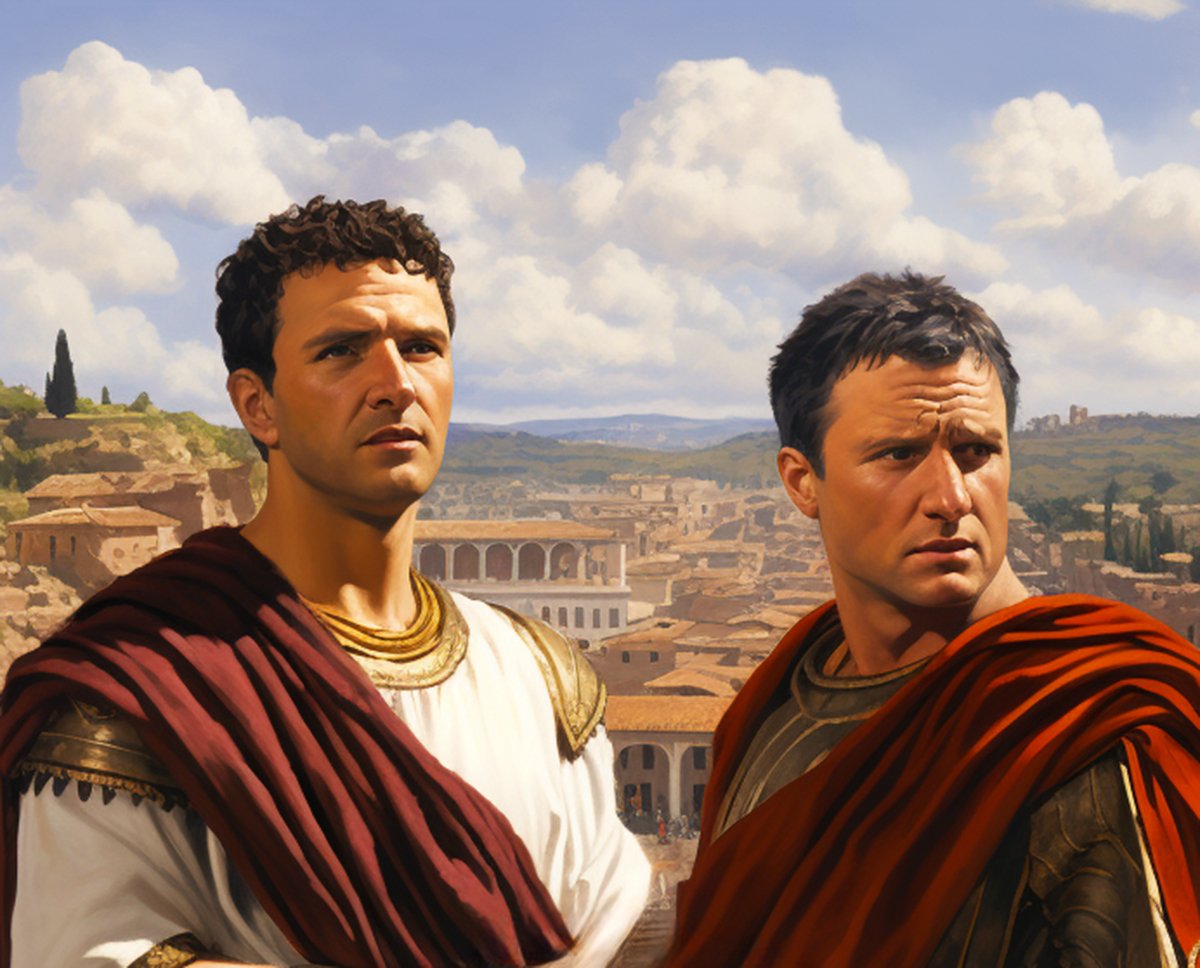
Tiberius Gracchus was one of those rare individuals who, despite being brought up with status and wealth, did not remain blind to the struggles of the common people. Born around 166 BC, he was in his mid-twenties when he traveled throughout Italy and was appalled by the number and size of huge plantations serviced by slaves. Tiberius immediately realized that a common farmer could never compete with such massive enterprises that had the benefit of free labor.
“The wild beasts that roam over Italy,” he would say, “have every one of them a cave or lair to lurk in; but the men who fight and die for Italy enjoy the common air and light, indeed, but nothing else; houseless and homeless they wander about with their wives and children. And it is with lying lips that their generals exhort the soldiers in their battles to defend sepulchres and shrines from the enemy; for not a man of them has an hereditary altar, not one of all these many Romans an ancestral tomb, but they fight and die to support others in wealth and luxury, and though they are styled masters of the world, they have not a single clod of earth that is their own.”
Tiberius’ sentiment, recorded by Plutarch who would have read it from a pamphlet more than two centuries after the event, carried more than just a story of poverty. The nature of the Roman military at the time made the shrinking of the middle class into an existential problem for the Republic. To begin with, in order to serve in the army a Roman citizen needed to own land and provide for his own weapons and armor.
This arrangement served the Republic well enough while wars were confined to Italy alone. During those days, campaigns were brief affairs, and after some fighting, surviving soldiers would return to their farms and tend to the land. However, in the 2nd century, Roman conflicts increasingly shifted overseas. By this time, Rome had acquired most of the Balkan peninsula, including Greece, as well as Spain and vast stretches of land in Northern Africa.
This meant that when fighting broke out soldiers would be forced to leave their farms virtually unattended for longer periods of time, as military campaigns would now take place a long way away from Italy. Conversely, the expanded Republic also had an extended list of enemies and territory needing protection, which means that very often soldiers returning home from a campaign would be immediately recalled to once again serve the Republic. In addition, a successful campaign would end with thousands upon thousands of slaves from conquered territories pouring into Italy to work the very land citizen-soldiers weren’t able to.
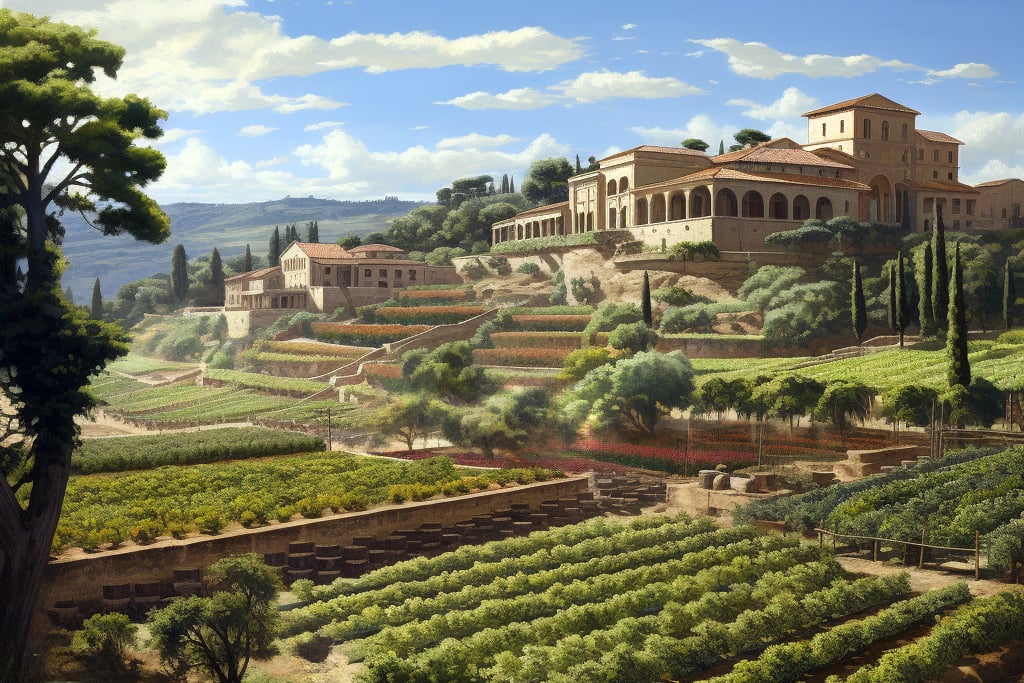
In essence, the gap between the rich and the poor was widening, as impoverished veterans sold their deteriorating farms to wealthy landowners. This issue became so pronounced that landless Roman citizens, who had become the proletariat in the predominantly agrarian Roman society, began having fewer children. Given the importance of political and military service in the Roman Republic, the senatorial class, which benefited financially from these wars, was paradoxically weakening its own effectiveness in the field.
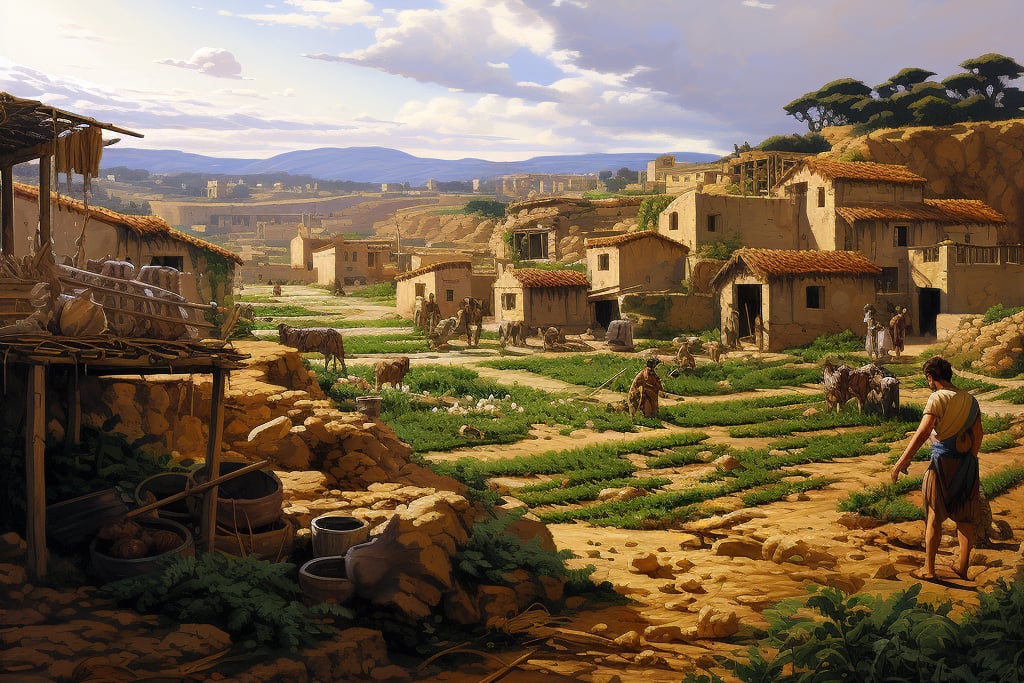
As the number of landowning Romans decreased, the recruitment pool shrank as well. While the upper class saw an expansion in their plantations and slave populations, their ability to raise (ever more essential) sizable armies dwindled. Along with it, their opportunities to distinguish themselves as military commanders and to achieve triumphs and glory for their families also reduced. Though this progression was gradual, it outpaced the elites’ recognition of the issue.
Although the Gracchi will become known for attempting to tackle these unforeseen consequences of the Roman wars of conquest, ironically, it was these same wars that elevated them to prominence. Tiberius’ father, Tiberius Sempronius Gracchus (the Elder), participated in many of these conflicts. As a consequence, he held consulship, the highest state position in the Roman Republic, twice (in 177 and 163 BC). He was awarded two triumphs, which were the highest state honor bestowed upon a military commander.
Gracchus the Elder first saw action during the Seleucid War (192 – 188 BC). There, he served with distinction under Lucius Cornelius Scipio and his brother, a military genius and hero of the Second Punic War, Scipio Africanus. Despite their service, the Scipio brothers were accused of corruption, upon returning to Rome with extravagant wealth. A trial was held, however, it was vetoed by none other than Gracchus the Elder, who held the position of tribune at the time.
Out of gratitude, as Livy the Roman historian claims, Scipio Africanus betrothed his daughter Cornelia to Gracchus the Elder. Consequently, Tiberius Gracchus (the Younger) was indeed the grandson of the renowned Scipio Africanus. Although his military service would never attain the acclaim of his father and maternal grandfather, he participated in some of the same theaters of war. Tiberius served as a military tribune under his brother-in-law, Scipio Aemilianus, during the Third Punic War (149 – 146 BC). According to Plutarch, he was the first to scale the walls of Carthage during that conflict.
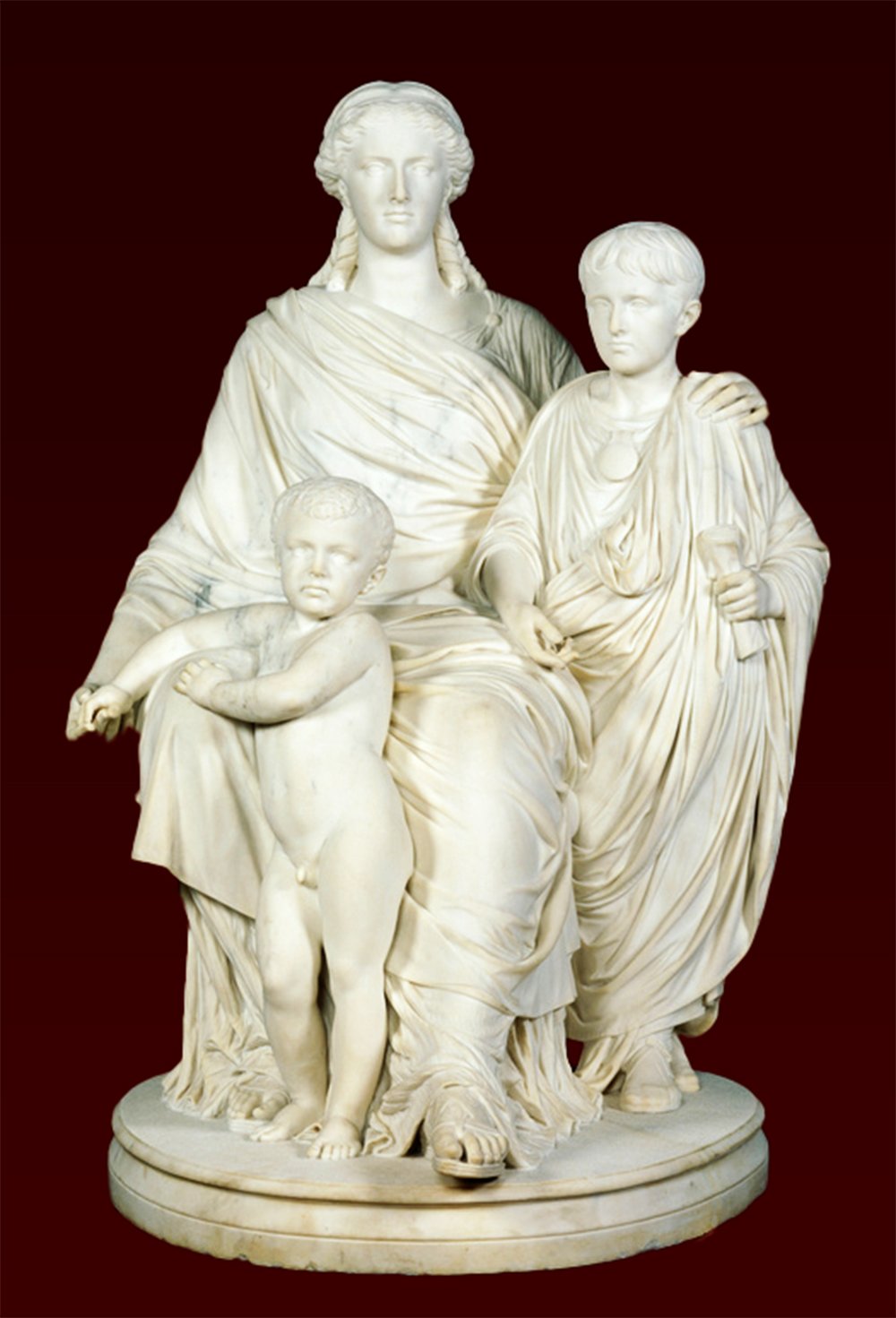
Immediately upon returning to Rome from the Third Punic War, Tiberius was promoted to questor, the next rank in cursus honorum (the hierarchy of Roman Republic’s public offices). It was in this capacity that he was sent to the Numantine War (143 – 133 BC). This war was Rome’s effort to pacify Hispania – something that Tiberius’ father managed to do decades earlier. Although, unlike the previous commander, Gracchus the Elder, the consul Gaius Mancinus who led this particular campaign met with little to no success. Despite numerous defeats Tiberius Gracchus remained loyal to his commander to the very end.
That end came with the Romans surrounded and begging for peace terms. The Numantians, however, refused to speak with Gaius Mancinus, but instead asked for Tiberius. This unusual request came about on the account of Tiberius’ father’s reputation. Indeed, Gracchus the Elder was as famous in Hispania for his military prowess as he was for his mercy and rationality in victory. He managed to secure more than 25 years of peace in the province by redistributing conquered land to the natives, rendered landless by previous wars.
Tiberius Gracchus the Younger was but a child when his father died, but he surely heard about his exploits countless times. However, he could not rely on his father’s post-victory policies at the time, as he was among the defeated. It was up to the Numantians to return the favor owed to his father, and show clemency. And show clemency they did, as 20,000 Romans and their allies were spared slavery and allowed to return home.
Tiberius also asked for his quaestorian account books to be returned, as they were captured earlier with the Roman camp. Not only was this granted, but the Numantians offered Tiberius to return all other possessions and spoils of war won by them thus far. Tiberius, however, refused this generous offer and took back just the account books he requested.
In spite of having secured rather favorable terms, Tiberius encountered mixed reactions at home. The Senate, feeling humiliated by the surrender, asserted that the agreement was void since it had been signed by a quaestor and not a consul. They were prepared to go to the extremes of stripping both Mancinus and Tiberius of their citizenship and possessions, with the intention of handing them over to the Numantians. While his former commander did meet that fate, Tiberius was spared due to public pressure exerted by the grateful families and friends of the countless Roman legionaries whose lives were saved through his actions.
Having not been forsaken by his comrades after the war, Tiberius reciprocated their loyalty. Emboldened significantly by the support he received from the people during his conflict with the Senate, Tiberius pushed forward a major reform. He wasn’t the first to recognize the risk of depriving the masses of their land in favor of the slave-owning plantation holders. In fact, since as early as 367 BC, a law had been in place limiting personal possession of state-owned land to 500 iugera (roughly 300 acres).
Since its earliest conquests Rome redistributed conquered lands as ager publicus (public land). It was initially intended for the land to be used by previously landless Roman citizens and veterans, but things obviously did not turn out that way. The law Lex de modo agrorum, intended to curb the accumulation of these lands by the wealthy, also proved unsuccessful. Initially, the affluent purchased extra land through their relatives, friends and clients, to the extent that it became glaringly evident that the law was entirely bypassed.
What makes Tiberius’ approach more comprehensive is his intention to address both the consequences and prevention. He proposed reviving the ancient law and also forcing everyone who owned more than 500 iugera of land to sell the excess land back to the state. Subsequently, the state would redistribute this land to those in need. This measure aimed not only to honor veterans but also to make potential new landowners eligible for military service. It would also level the playing field in the food market by reducing the dominance of slave plantations.
In order to accomplish all of this, Tiberius had himself elected tribune of the plebs. According to Plutarch, the masses “urged him by writing on the porticoes, the walls, and on the tombs, to recover the public land for the poor.” Not only did he garner the support of the masses, but he also counted among his allies his father-in-law, his brother-in-law Scipio, and his younger sibling Gaius.
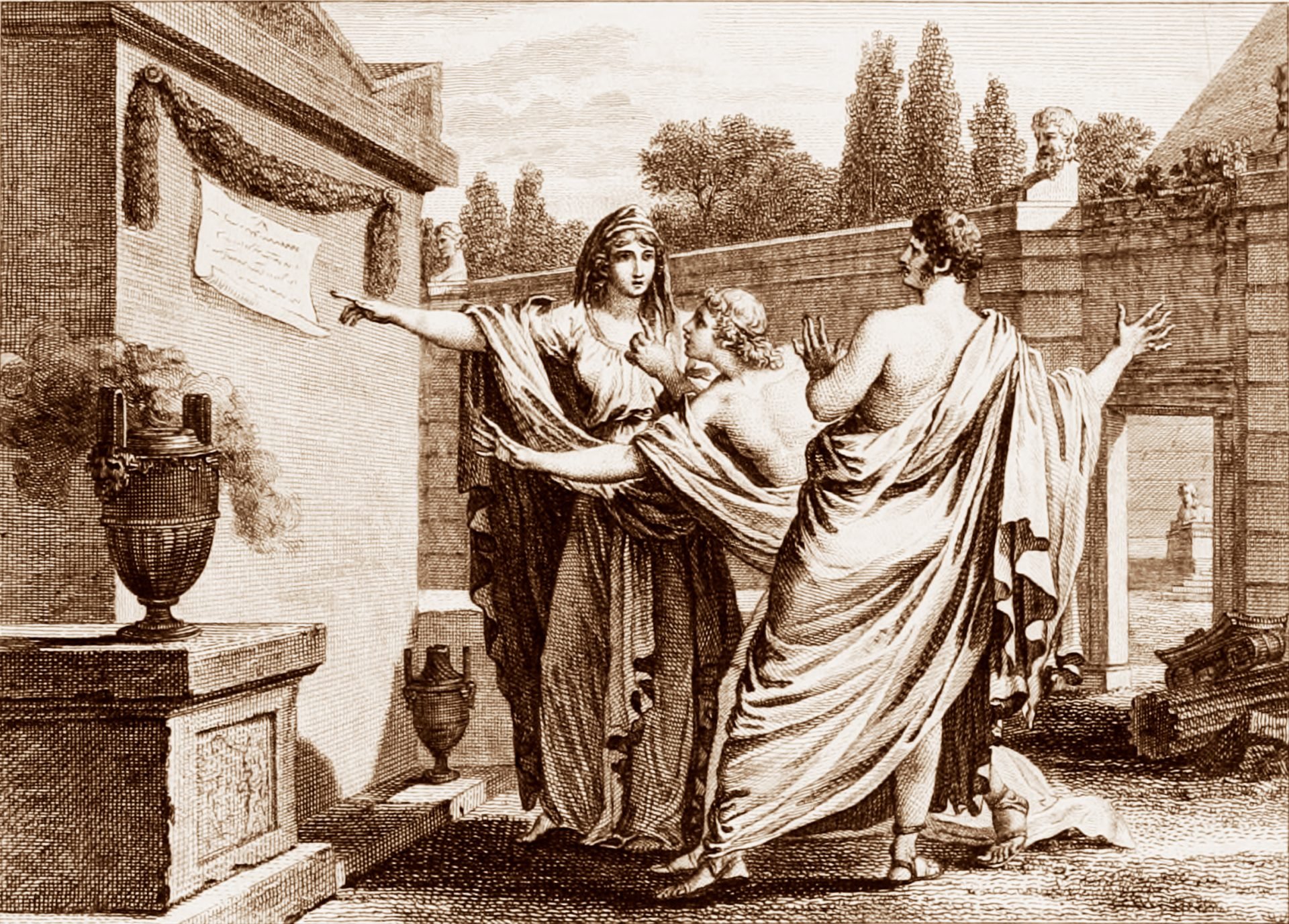
Among the elites, however, he was far outnumbered by his enemies. The wealthy were unwilling to relinquish their land and enlisted the help of one Marcus Octavius. Octavius was a colleague of Tiberius, one of the ten tribunes of the people, and, according to Plutarch, his friend. Was Octavius bribed, blackmailed, or simply agreed with Tiberius’ opposition we do not know, but he vetoed the land reform law proposed by Tiberius. In the Roman Republic, a tribune’s veto was rarely used, but it was absolute, and could not be overturned except by the same tribune who enacted it.
Although no one was aware of it at the time, this collusion to undermine state laws and offices for personal gain was the first step towards the collapse of the republican order. Tiberius used his own power of veto to oppose any and all laws proposed by the Senate. He went as far as to withhold public funds from the magistrates, virtually incapacitating the government completely. Furthermore, while his initial land reform law was measured and compromising, envisioning no punishment for those accumulating illegal amounts of land, and even promising reparations, the new version of the law was anything but.
Naturally, Marcus Octavius vetoed the harsher version of the law too. Despite Tiberius’s attempts at reasoning with him, none of his arguments appeared to resonate with Octavius. Seeing no other option, Tiberius decided to do something drastic – he proposed a vote of no confidence against Octavius. He made his intentions public and pleaded with Octavius to step down. Octavius refused, which prompted the ten tribes of Rome to vote and remove Octavius from office. Before the tenth tribe could vote, however, Tiberius pleaded once again for Octavius to step down, only to be once again denied.
The final vote was passed and Octavius was stripped of his position, and nearly deprived of his life. Despite Tiberius trying to calm the masses, they rushed towards the former tribune, no longer under the protection of his title. He managed to escape with his life, but one of his closest attendants had an eye gouged out by the mob. Alongside agrarian reform, violence had entered Roman politics.
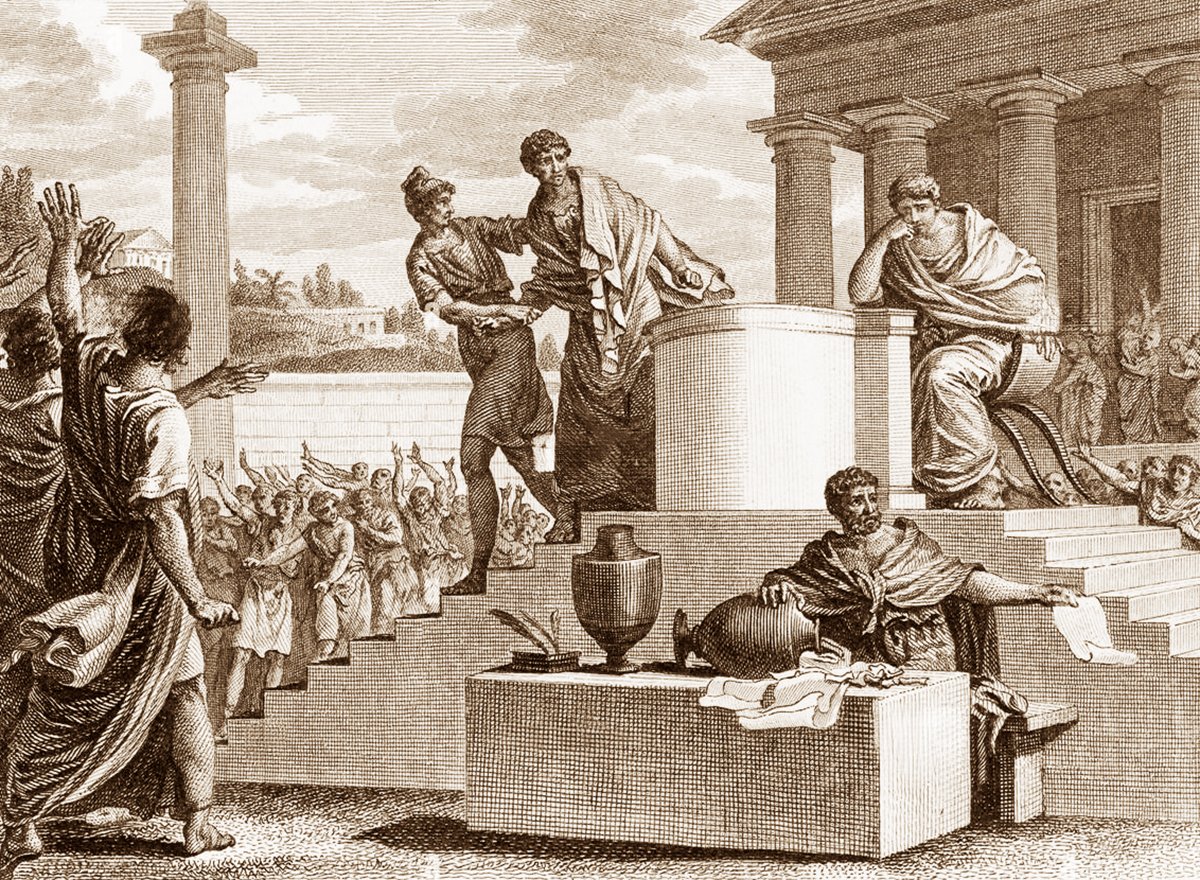
Rome had no police force at the time, and the Republic relied on state traditions and the good faith of politicians not to resort to violence against their opponents. However, those days of good faith political behavior were drawing to a close, and even the ever-popular Tiberius started carrying a weapon. At one point, he addressed the public with tears in his eyes, expressing his concern that his enemies might break into his house at night and kill him. This touched his audience so profoundly that many of them camped out around his house to offer protection.
Tiberius’ law, though ratified, continued to face sabotage from the Senate, which asserted that there was not enough money in the treasury to compensate those who would lose their lands. In addition to this, many members of the landowning elite claimed that their family tombs were located on the very lands being expropriated from them.
In a Deus ex machina moment, the king of Pergamon, a Hellenistic state in Asia Minor, died without heirs and chose to bequeath his entire kingdom to Rome. All of a sudden, not only was there enough money to compensate the wealthy, but there were also new lands that could be distributed to veterans. Despite this seemingly fortuitous turn of events, members of the Senate were worried. They were concerned that if Tiberius were to be allowed to distribute the land, the people would then become more loyal to him than to the Republic itself. In other words, they feared that Tiberius might become a king.
At the time, Tiberius was preoccupied with getting himself re-elected as the tribune of the plebs in order to preserve the protections bestowed upon him by this office. This was no easy task, as the position of the tribune had not been held more than once in centuries. Just before voting was to take place a senator approached the crowd asking to speak to Tiberius. He bore grave news, a group of wealthy senators was plotting to assassinate him.
Hearing this, Tiberius’ supporters who were physically closest to him decided to act and began to arm themselves. Those farther out however, could not hear the senator and shouted to Tiberius asking him what was going on. To this he responded pointing to his head, trying to indicate that it was what the Senate was after. Unfortunately, some members of the crowd interpreted this as if Tiberius was asking for a crown. It was this information that reached the Senate in a few short minutes, fueling the fears they already harbored.
A few senators turned to one of the consuls asking him to do something about it. He tried to calm them down, proclaiming that if the people were to enact an illegal law, such as the establishment of a kingdom, he would simply veto that decision. This was by no means enough for the senators, and upon hearing the tepid reaction of the consul, Publius Cornelius Scipio Nasica Serapio, Tiberius’ first cousin, shouted: “Let those who want to save the state follow me!”
Plutarch describes the situation that ensued: “Now, the attendants of the senators had brought clubs and staves from their homes, while the senators themselves grabbed pieces and legs of the benches shattered by the fleeing crowd. They confronted Tiberius and even struck those standing guard around him. A chaotic rout ensued, resulting in casualties. As Tiberius attempted to escape, someone caught hold of his clothing. Letting go of his toga, he fled in his tunic but tripped and fell among bodies before him. (…) Over three hundred others were fatally struck by sticks and stones, yet not a single one fell to a sword.”
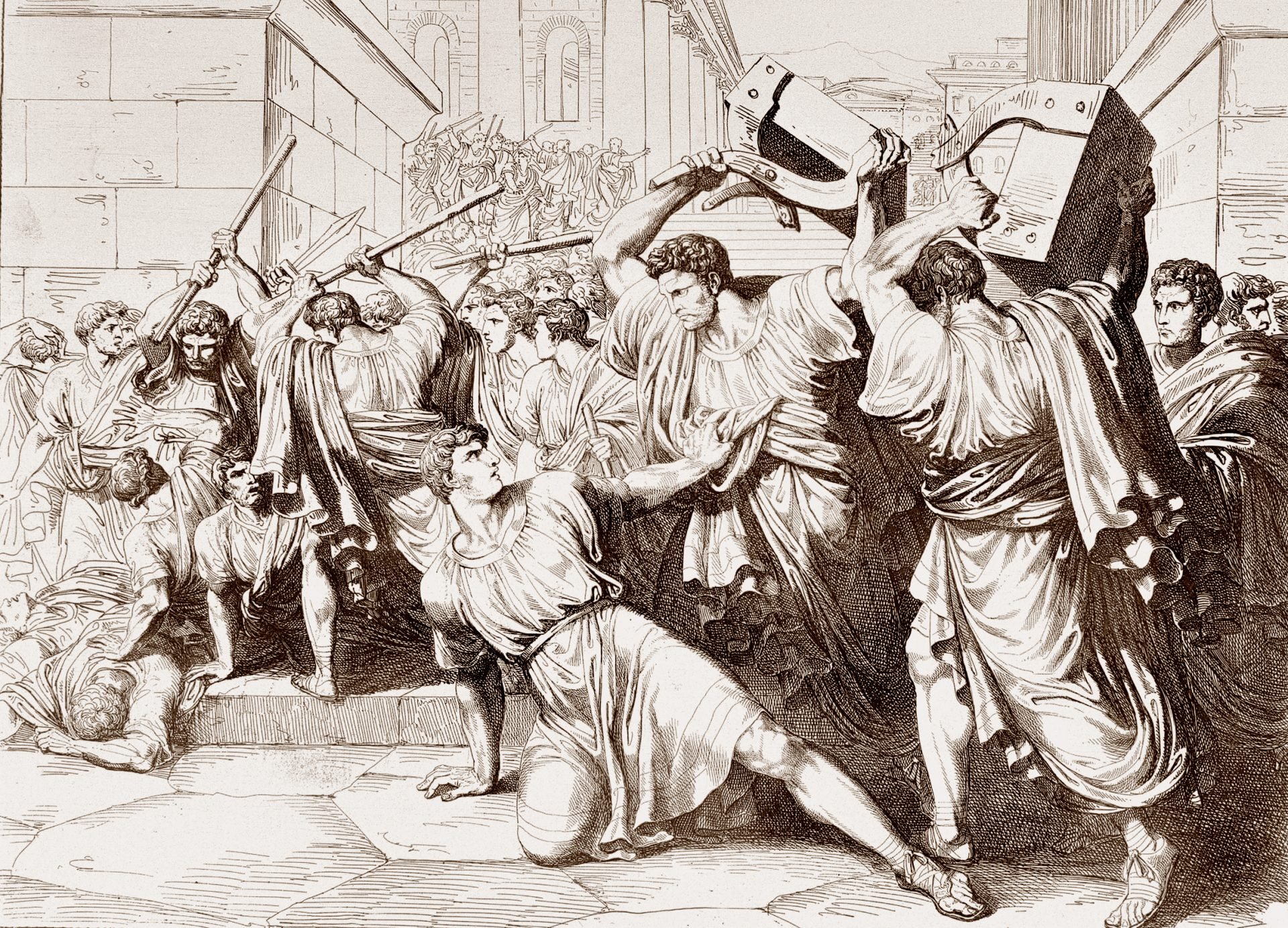
Tiberius died in the melee, struck down by the blunt weapons of the Senate’s mob. Ancient sources were quick to recognize that this was the first such bloodshed among the Romans since the last king of Rome was deposed, more than 350 years earlier. Tribunes of the plebs were considered sacrosanct in ancient Rome, to harm them was sacrilege. The Senate did not stop there however, and showed little mercy to those Tiberius’ associates who managed to escape. Many were subsequently caught and killed, often without a trial. “A certain Caius Villius they shut up in a cage, and then put in vipers and serpents, and in this way killed him,” reports Plutarch.
The Senate rubbed salt into the wound by refusing Gaius Gracchus’ request to bury his brother. Instead, they decided to throw the body of Tiberius and 300 others into the Tiber river, as if they were common criminals. Not to enrage the masses, however, the Senate still carried out Tiberius’ law and redistributed the land. Gaius Gracchus, although involved in his brother’s reform, was barely 20 at the time and was unable to take up the leadership of an entire social cause.
He withdrew from public life but was later called back to defend one of his friends in court. He achieved extraordinary success as an orator. But, while his brother was measured and calm, Gaius’ style was passionate and fiery. The Senate swiftly realized that it might have another Gracchus to contend with. Consequently, when Gaius applied for the office of questor, he was dispatched to Sardinia with a plan to keep him there indefinitely.
Elected positions in the Roman republic typically lasted for a year. However, when a questor was assigned to a provincial governor he would stay with him until his governorship was finished. A governorship nominally lasted for a year, but often got extended on account of a crisis. This very idea was abused by the Senate to keep Gaius away from Rome. There was no end to their surprise when they saw the younger Gracchus in the forum despite him being officially assigned to Sardinia. They attempted to prosecute him for desertion, but Gaius’ gift for rhetoric came into play and he was acquitted.
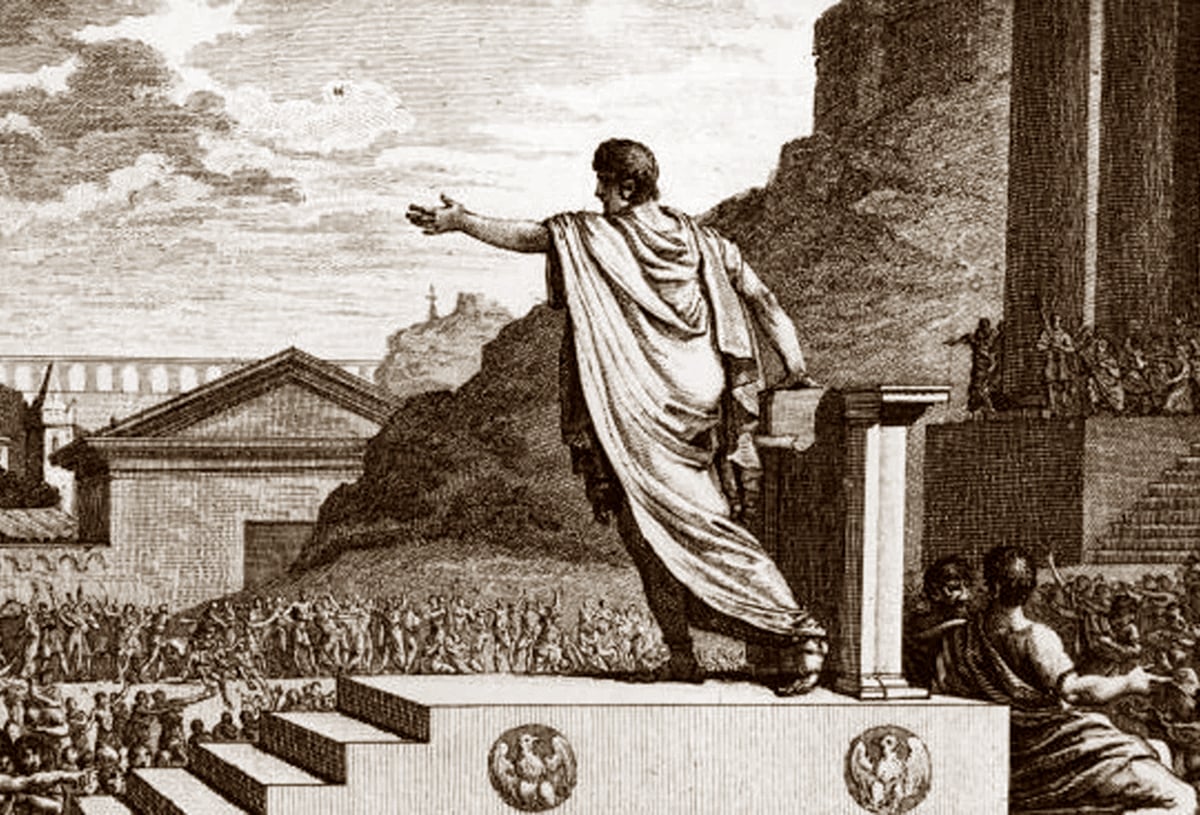
Riding on the wave of this success and fueled by the memory of his brother, Gaius was elected tribune of the plebs, thus realizing the Senate’s worst nightmare. He immediately proposed laws that would forbid banishing Roman citizens without trial, as well as preventing once deposed officials from running for office. Gaius claimed he wanted to clean up the politics of the Republic, but it was obvious to his enemies that he tried to legitimize his brother’s deposition of Octavius, as well as punish those who prosecuted Tiberius’ supporters.
His reforms did not end with these two measures. He also proposed granting Roman citizenship to the Republic’s Latin allies. This was something that would only end up being settled after the Social War (91–87 BC) — this war could have been prevented if Gaius’ reform had been adopted earlier. Another forward-looking proposition, that would only be enacted after his death, was for the Republic to provide clothes and weapons for its soldiers. Both of these ideas would expand Rome’s recruiting pool dramatically. His most successful and long-lasting proposition, however, was the one providing state subsidized grain for the poor.
In addition to his legislative efforts, Gaius Gracchus dedicated himself to public service. His success and popularity were such that he achieved what his brother had died trying to accomplish – becoming a tribune for a second term. Ironically, Gaius didn’t even campaign for this office. However, there were so many tribune candidates that many of them failed to secure the minimum number of votes required. In such cases, the remaining tribunes are selected by those who did achieve the necessary number of votes.
The Senate, on the other hand, was determined to undermine Gaius in any way imaginable. Whenever he proposed a new benefit for the people, the Senate would, contrary to the interests of its members, introduce an even better one. For instance, if Gaius proposed the establishment of a few colonies for the homeless, the Senate would suggest twice as many. Additionally, they attempted to turn people against him by asserting that they would lose all privileges to foreigners if the younger Gracchus succeeded in extending Roman citizenship to the Republic’s closest allies.
It should come as no surprise, when Gaius attempted to get himself elected tribune for an unprecedented third term, he was defeated. According to Plutarch and Gaius himself, the elections were rigged through fraud. Regardless of the circumstances, stripped of his office, Gaius was now less of a threat to the Senate, which was already planning to repeal all of the reforms put forward by him.
Gaius decided to make one final stand. In an attempt to prevent the repeal he led a group of his staunchest supporters to the Capitoline Hill. Unfortunately, one of Gaius’ bodyguards killed a consul’s attendant for a perceived threat. This gave the Senate the pretense of a righteous cause to move against Gaius. Anticipating this, Gaius and his supporters barricaded themselves on the top of Aventine Hill.
While the attack on his brother, Tiberius Gracchus, by the Senate, was a spontaneous outburst of violence, the violence against Gaius was premeditated. Gaius offered to surrender, but his supporters opposed it, and so did the Senate, arriving at the scene with mercenary archers. Outnumbered and outgunned, Gaius and his supporters were quickly overpowered. A few of his friends sacrificed themselves to buy Gaius time to escape, but it was not enough. It remains unclear whether he committed suicide or was killed by his pursuers, but he did not live to see the end of that day.
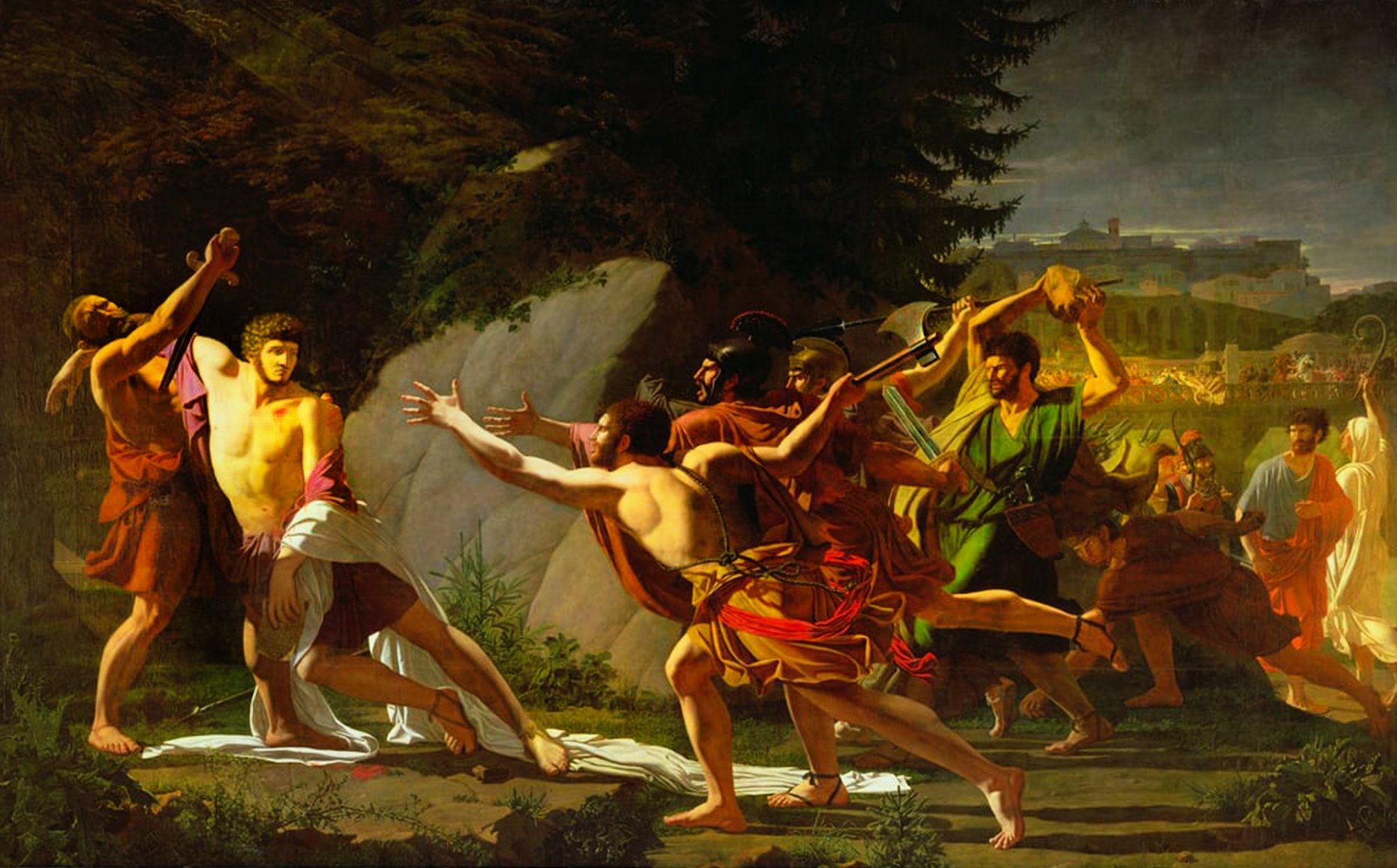
With the death of Gaius Gracchus a new kind of violence entered the arena of Roman politics, one which would dominate the next hundred years until the Republic finally collapsed and an Empire rose in its stead. Like his brother before him, Gaius was thrown into Tiber together with the bodies of his supporters. Nonetheless, the problems he tried to tackle within Roman society remained and eroded the social order, as much as the methods the Senate employed to subdue his and his brother’s cause.
The polarized distribution of wealth, the dwindling middle class, and the growing influence of the super-rich are issues that would continue to haunt Rome and many other societies long after the deaths of the Gracchi brothers. Populists who proposed ad-hoc solutions through wealth redistribution would also reappear on the world stage. Even Karl Marx wrote about the Gracchi brothers in his work ‘The 18th Brumaire of Louis Bonaparte,’ highlighting their efforts to address class conflicts and social inequalities through land redistribution. One of the most notable homages to the Gracchi brothers is that of François-Noël Babeuf, a French proto-communist revolutionary known today by his nickname, Gracchus Babeuf.
